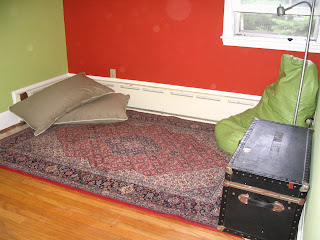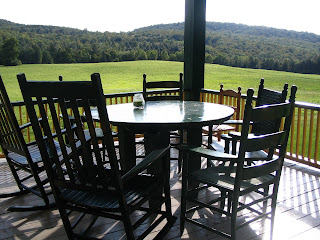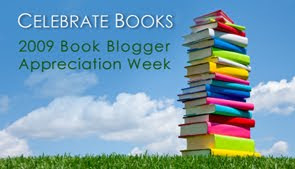Although I’m still working on a poetry manuscript and it’s taking me longer than expected, I wanted to take the time to attend the big writer’s conference for two reasons:
- It was in Boston, which I miss
- I’ve never been to a conference of this size with so many writers and I wanted to see what other people were doing and how they coped with time management and other issues.
Registration opened on Wed., March 6, and I had planned to get my registration and spend the day with my hubby in Boston, while the little one was watched by her grandparents. While I did pick up my conference badge, etc. and we did get to have a lunch at an Irish pub, Sólás, that had phenomenal smoked Gouda and bacon fondue and some great chowda and soup! Unfortunately, that’s when we got the call that the little one was running a fever and was not eating, etc. Let’s just say that the plan to go out and about and take photos and just explore did not happen as I had expected and we headed home. And this was a continued issue for me throughout the remainder of the week — worry over the kiddo and balancing that with the conference that I paid for, plus a lovely blizzard!
Thurs., March 7:
My first panel was “Revival of the Literary Salon with the Cambridge Writer’s Workshop” with Jessica Piazza (whom I’ve interviewed for 32 Poems), Rita Banerjee, Diana Norma Szokolyai, Samantha Milowsky, and Jade Sylvan), which was fun. We learned about the creation of literary salons or writing groups that mix genres and music or more to experiment with form and just have fun. It is less about critiquing work outright and more about learning and sharing with others. A fun environment in which to share work that may be in draft form or that may be hard to finish for some reason, etc. It can help provide feedback without being formal. This panel ended with a writing exercise, similar to the game of Taboo, in which groups were randomly formed to write about an object in poetry from without using a certain list of words. My group’s poem was not as good as the others in my self-critical opinion, but I confess, I’m not really a morning writer and this was the 9 a.m. panel. I also felt for a long time like the most “normal” person in the room, and I’m far from normal.
I did end up missing 3 panels — “Keeping Track of Your Book,” “Sources of Inspiration” with Matthew Pearl and “The First Five Pages: Literary Agents and Editors Talk” — because I decided to meet with Sweta Srivastava Vikram at her publisher’s booth, Modern History Press, for a chat that turned into a 2 hour lunch! Sweta is as lovely and honest in person as she is online, and I really love that about her. You can check out an impromptu photo with one of her other poet friends, Rajiv Mohabir, here on Facebook. We had such a great discussion of personalities online and offline and how disingenuous it seems when people have separate personas online and off, as well as a discussion about pulling back from friends in need because they seem to always be in need, etc. Was a great discussion of chowda and lobster bisque!
The second panel I attended, “What a Novella Is,” was moderated by my friend K.E. Semmel, and touched upon the hardships of writing and defining a piece of work. The panelists talked about how difficult it is to define novella beyond a simple word count, but most agreed that there is a single line of story but that it goes deeper than a short story would. There were questions from the audience about Novella and it was discussed that writers need to take a hard look at their longer pieces to see if it is a novel in progress or a short story with too much excess before deciding its a novella. There were some great novella recommendations from the panel, including one of my recent favorites — We the Animals by Justin Torres. For a more in depth recap, please check out Melville House. For this panel, I missed these panels “Lady Lazarus and Beyond: The Craft of Sylvia Plath,” “Writing the Great Hunger,” and “Literary Boston: A Living History” — I think it would be great to split panels up between friends and compare notes, since so many panels are at the same time in different rooms.
“The Chapbook as Gateway” panel with B.K. Fischer, Stephanie Lenox, Lyrae Van Clief-Stefanon, Susanna H. Case, and David Tucker was interesting and discussed how poets can use chapbooks as a limited edition to gain audiences and readers before a first book comes out, like a preview to greater work to come. It was touted as a possible marketing tool at readings, with poets remarking on how many copies are available in the limited edition chapbooks and that only those readers acting quickly will have the gem. It was interesting to note that some of the poets also have published other chapbooks even since their first book and that they find they like the form as a way to reach new readers at readings and to fill in the gaps between books. Unfortunately,this panel was at the same time as “Does Place Still Matter,” a panel with Stewart O’Nan.
“Women Poets on Mentoring” with Allison Joseph, Rebecca Dunham, Brittany Cavallaro, Shara McCallum, and Tyler Mills was an excellent panel to end the day with and circled back to the earlier discussion Sweta and I had over lunch. Each talked about their mentee-mentor relationship and the differences between it with their advisor-advisee relationship. It was very engaging and it was clear that the relationships between these women were mutually beneficial. However, there were questions from the audience about how to find mentors if you are not in a college or graduate program, and the women suggested writing programs at local centers, connecting with favorite authors through letters or email and even online, and just attending events, though they cautioned that pushing work and reviewing work early on in the relationship is not advised. The panel also talked about how to balance the mentor-mentee relationship with other obligations, like jobs and family.
After this panel, I headed home and missed the keynote with Derek Walcott and Seamus Heaney, even though I really wanted to attend. There was a big time gap between the panel and the keynote and my daughter had a fever and was feeling poorly, so I headed home.
Friday, March 8‘s blizzard hit my parents area harder than Boston, so we received a lovely 22 inches of snow and getting to Boston was going to be difficult, so I chose to miss all the panels I had prioritized and wanted to see more than the others in the schedule (including Fred Marchant’s panel on his 20th anniversary of his first book, etc.) to care for my still sick daughter. She slept a great many hours on my lap throughout the day.
Sat., March 9:
I chatted with Sweta when I arrived at the bookfair (which is an overwhelming 3+ rooms) and met a couple poet friends of her throughout our chats. After out morning chat and a couple of stops around the bookfair, I headed to the “Lower Your Standards: WIlliam Stafford in the Workshop” panel with Fred Marchant, James Armstrong, Phillip Metres, Alissa Nutting, and Jeff Gundy. Jeff Gundy and Alissa Nutting were hilarious, with one of them talking about their own first workshop experience and being half-naked in the bathroom crying even though they had no reason to pee. It seemed that some of the panelists knew Stafford well when he was alive and they talked about his workshop philosophy and his hands off style of teaching, as well as his negativity toward grading and even praising students as too much guidance, etc. It was a good panel about guiding writers in their process and remaining less focused on an outcome/finished product. I did miss a panel with Yusef Komunyakaa for this panel about “Breaking the Jaws of Silence,”
“Bringing Poetry to the People” with Taylor Mali, Samantha Thornhill, Jon Sands, Roger Bonair-Agard, and Michael Salinger was a great panel about how to get poetry out to the community, but it also was more about providing those with stories to tell a way in which they can tell those stories that is accessible. There were several programs that focused on needle-exchange programs and prisoners and how to get those people to write poetry as a way to cope, etc. While inspiring, those are not things I could see myself doing, but I’d be interested in supporting those programs for sure because some of the poems these people shared from the participants were emotionally jarring and moving. PopUpPoets showed a video of breaking down walls among commuters etc. as each poet boards a train, for instance, and stands up to begin reading poetry, and sits down before another stands up in a sort of round robin. As someone who is incredibly nervous reading in public, this also is not for me, but I really love the idea of getting poetry greater exposure among the general public!
I checked out the rest of the bookfair and met up again with Sweta, who was my buddy this conference. I felt like a zombie at this point and some of the people walking around the book fair seemed like zombies as well.
My final panel, “Master of None: Surviving and Thriving Without an MFA,” with Ru Freeman (loved Disobedient Girl), Rebecca Makkai, Samuel Park, Marie Myung-Ok Lee, Ida Haffermer-Higgins, has given me hope that I won’t have to incur a lot of debt to get a book published or find an agent, if I get a novel done and need one. Unless I’m interested in teaching or embarking on another profession, I have no need for an MFA unless like someone in the audience said, “I need a structured program to sit down an write.” I love that the women on this panel are balancing family and other jobs, and though it is sad to see that they have to hold down other jobs to make ends meet and that they cannot simply write all day, Ru Freeman was witty with her quips. She even pointed out that big publishers certainly make a ton off of the books they publish when Samuel Park said that the editors no longer edit but have other jobs and duties that they fulfill off the clock. Freeman also said that she finds men tend to have more time to write than women who are juggling full-time jobs and family obligations, but some male audience members wonder if that’s true for all men. I’m sure she didn’t mean all men and was just making an observation based on her experiences.
Like most other people, I left the conference after this panel, though I wanted to spend time with family and be with my sick girl, who was feeling better and seemed to be eating solid food again but was still out of sorts.
My overall impression of this conference was that there is a sense of information overload and that you have to prepare ahead of time. Getting the registration done the day before the panels started, allowed me to plan my days for the most part, rather than wandering around aimlessly. However, I still felt I missed too many goodies, and would rather do this again with a buddy, maybe 2017 with Anna in DC. I did want to attend some after conference readings, but alas family life and snow got in the way. I did like connecting with poets, etc., I know from online in person and having lunch and longer conversations. That aspect was so much fun, and the panels were great, but packed too close together so you are either forced to eat in a panel after grabbing something quick or skipping food until dinner. As Fred Marchant told me after his Stafford panel, it’s the nature of the conference to feel incredibly guilty about missing out on friends’ panels or readings and feeling overloaded and lost, but all of us know that we are supporting one another in spirit, and I think that’s something I’d definitely keep in mind for next time.
If you attended AWP 2013, I’d love to hear your thoughts and read about what panels you went to and what you learned. Feel free to check out my tweets from the conference.











